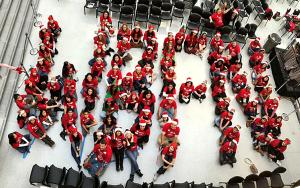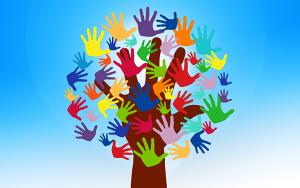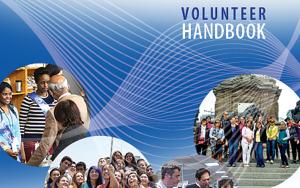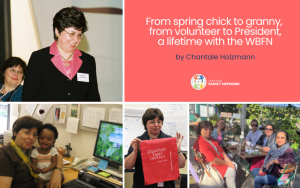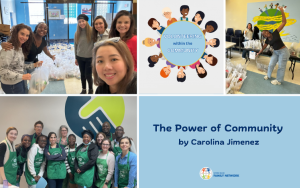
Back in May, our members attended highly informative and beneficial sessions where they met with experts and learnt about the diverse range of relocation support and services provided by the World Bank Group to staff and their families. The events, co-sponsored by Global Mobility Advisory Services, IFC HR, and the Family Network, showcased the support systems in place to assist families during international relocations.
One of these sessions featured panelists Sandipa Thapa, Joel Ssevume, and Olga Doubina, all WBFN members, and was moderated by WBFN President Mary Summers. They provided expert insights on the challenges and benefits of international relocation for families through their personal experiences. Here are some highlights from these enriching discussions.
What has been the biggest challenge for your family during international relocations?
Olga Doubina: Our first move was from Moscow to Uganda, then to Ethiopia, and finally to Washington, DC. The biggest challenge was ensuring my family was settled while my husband focused on his work. And my older son had a very profound plan how to escape from us from the airport, because he didn't want to go. Personally, it was about maintaining my identity through each move, which involved a process of grief and reinvention. The World Bank Family Network provided invaluable support through career counseling, especially during the pandemic when these services were available online.
Joel Ssevume: The cultural shift was significant, especially since we moved for my wife’s job. Lack of information was a major hurdle. For instance, we arrived in winter with inadequate clothing and had to adapt to using public transport in a new city. Financial strain also added stress, as we initially stayed in an expensive area without guidance. Discovering the Family Network was a turning point, helping us navigate these challenges and motivating me to volunteer and support others. Not to mention, the ‘Tools To Move’ website, which offers some very useful relocation tips and strategies.
Sandipa Thapa: We’ve moved six times, and each move brought anxiety and excitement. Our son, who was six during our first move and is now 23, struggled with the cultural shift. Initially, he thought we had become poor due to the stark differences between our home country, Nepal, and the US. The Family Network provided emotional stability and a sense of belonging, which was crucial for us. Personally, as a career coach, I had to reinvent my professional path with each move, but the support from the network made it manageable. Also, I discovered the ‘Tools To Move’ website, which helped us immensely with great information on smooth transitions.
What advantages can families gain from the relocation experience, both personally and professionally?
Olga Doubina: My kids are much more resilient and adaptable, open-minded and they're definitely growing up as global nomads and thankful people. We are closer as a couple because facing challenges together has strengthened our bond. Personally, I've developed qualities I never knew I had. Although I am an introvert, I became a local connector in Uganda and Ethiopia, building a supportive community around me and helping families like ours. It’s been a joy to discover this about myself and to see the positive impact I can have on others.
Joel Ssevume: When focusing on the challenges, it’s easy to overlook the opportunities that come with these relocations. However, despite the short period I've been here, I see more opportunities than challenges. On a personal level, the biggest benefit has been family bonding. Navigating these challenges with my spouse has brought us closer together, and we cherish our three-year-old son. Back home, I wouldn't have spent as much time with him as I do now.
Sandipa Thapa: With my first move, I was not happy. We came to US, and I moved back in one month, I went back because I had a very successful career back home. But with a child, family comes first so I came back. Relocation offers numerous opportunities, such as developing a global mindset and cultural sophistication. Despite the initial resistance, especially from children, the long-term benefits are significant. My son, who was initially reluctant to move, now appreciates the diverse experiences and perspectives he gained. These experiences have enriched our lives, providing us with resilience and a broader understanding of the world.
Our members and their experiences highlight the importance of support systems in helping families adapt to international relocations. Through shared experiences and practical advice, the Family Network fosters resilience and a sense of community, making transitions smoother for everyone involved.

